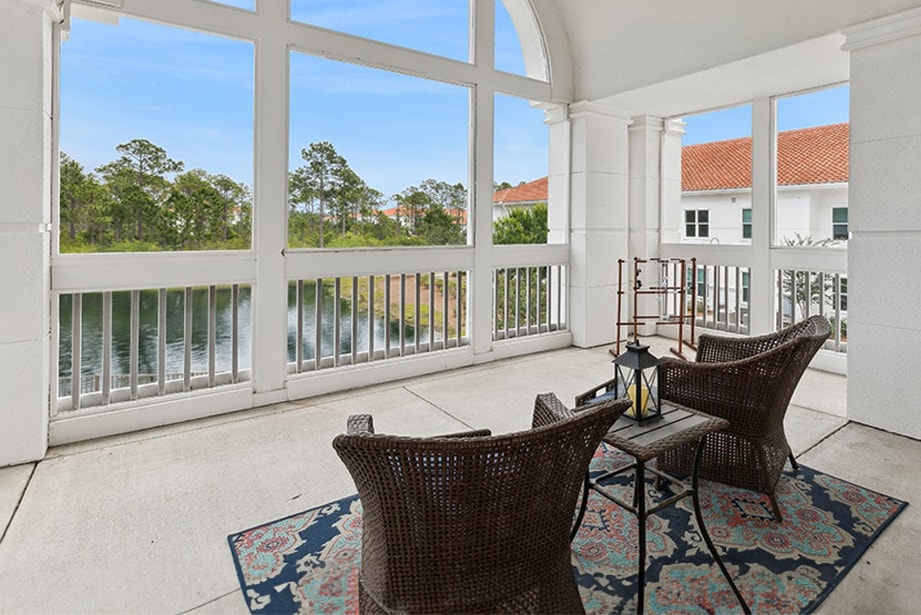Moving into assisted living is a big step—for both seniors and their families. While there are telling signs that you have made the right choice for your parent, even after the move, some seniors can feel unsure or regretful. If your parent tells you they want to leave assisted living, it’s important to listen, understand why, and help them find comfort—whether that means adjusting to their current environment or exploring other options.
Transitions can be especially emotional in close-knit areas like Santa Rosa Beach, where many seniors have strong connections to their homes and community. Knowing how to approach the conversation with empathy and confidence can help guide your family through this sensitive time.
Why Would a Parent Want to Leave Assisted Living?
There are many reasons a parent may express a desire to leave assisted living, and it’s rarely as simple as it seems on the surface. The first step is to listen without judgment and try to understand what’s behind their request. Common reasons to want to leave include:
- Feeling isolated or disconnected: If your parent hasn’t built relationships yet or feels out of place socially, it can impact their overall happiness.
- Concerns about health or safety: Some residents may feel unsure about their care or have specific issues they’d like addressed.
- Loss of independence: It’s not uncommon for seniors to feel that assisted living limits their autonomy, even when the structure is intended to support it.
- Financial stress: Costs related to senior care can create anxiety—whether real or perceived.
- Unmet expectations: If the activities, food, or space don’t align with what your parent envisioned, they may want to leave rather than adapt.
Talk to Your Parent About Their Reasons
Having an open and respectful series of conversations can help uncover what’s really going on. Your goal is to listen and build a picture of their needs, not solve everything at once.
Speak with Compassion
Approach the conversation with patience, even if your parent is emotional or upset. Use statements like “I want to understand what you’re feeling” to open the door without being defensive.
Invite Honest Feedback
Sometimes parents hesitate to voice concerns because they don’t want to worry their children. You might prompt by asking questions like, “What would you change about your current living situation?” to encourage more open conversation.
Validate Their Feelings
Even if their concerns seem minor or misguided to you, it is very real to them. Saying something like “That sounds really hard. I can see why you’d feel that way” shows you’re still on their side. Listening builds trust, which is key to moving forward.
Ways to Help Your Parent Feel Happier in Assisted Living
Once you understand the reasons for your parent’s dissatisfaction, you can take steps to help them feel more at home.
Address Specific Issues Together
If they’re feeling isolated, encourage them to attend a group activity or social event. If they feel unsafe or uncomfortable, work with staff to make small but meaningful changes—like adjusting care levels or installing extra safety features. Personalizing their environment can make a big difference.
Spend Time Together on Site
One of the best ways to help your parent feel more connected is to spend time with them in their community. Attend an event, go for a walk together, or try out a class they’ve been hesitant about. Familiar faces make new experiences easier to embrace.
Use Community Resources
Assisted living communities in Florida—like those in Santa Rosa Beach—often have resources designed to support transitions. These may include counseling, wellness programs, or social groups. Discovering them together can show your parent what’s available and help them feel more supported.

When Assisted Living Might Not Be the Right Fit
Despite your best efforts, there may come a time when it’s clear your parent truly isn’t thriving in assisted living. If so, it’s okay to reevaluate. Their well-being—not just the plan—is what matters most.
Other Options to Consider
- Independent living: If they are still largely self-sufficient but want a maintenance-free lifestyle, this option could offer the autonomy they crave.
- In-home care: If they’d prefer to remain in a familiar environment, a home care provider could help with daily tasks.
- Living with family: For some, returning to live with adult children is a viable option—but this requires honest conversations about boundaries, care needs, and household dynamics.
- Skilled nursing facilities: If their health needs have changed and they now require a higher level of medical support, a nursing home may be more appropriate.
What Makes a Senior Living Community Worth Staying In?
When a parent expresses a desire to leave assisted living, it’s important to consider not only what might not be working—but also what could make them want to stay. A strong senior living community doesn’t just meet basic needs; it offers a lifestyle rooted in meaning, comfort, and personal fulfillment.
Thoughtful Environments That Support Well-Being
Communities that foster a sense of calm, privacy, and ease can help residents feel more comfortable and in control of their space. Details like beautiful outdoor areas, quiet reading nooks, or flexible daily routines can create a setting where older adults feel less like they’re in a care facility and more like they’re truly at home.
Dining That Invites Joy
Mealtimes can be among the most enjoyable moments of the day when they’re approached with care. Communities that emphasize fresh, seasonal ingredients and provide chef-prepared menus create more than just nourishment—they offer a familiar rhythm and opportunities to gather with others in a relaxed, welcoming atmosphere.
Daily Life That Feels Engaging
Having meaningful ways to spend the day can shift a resident’s entire perspective. When a community offers diverse, interest-based programs—like music, local outings, or creative workshops—it helps residents reconnect with passions and discover new ones. These experiences add energy and intention to each day, rather than filling time for its own sake.
A Community That Celebrates the Individual
When older adults feel seen and valued, they’re more likely to feel content where they are. Communities that take the time to understand personal stories, honor past experiences, and create space for continued growth often build stronger connections. Whether through personalized recognition, shared celebrations, or programs that highlight residents’ unique talents, it’s the small gestures that make a big impact.
Helping Your Parent Find the Right Path
If your parent wants to leave assisted living, it doesn’t mean the move was a mistake. It simply means they need something to feel more at ease—whether that’s more support, more independence, or just to be heard.
By opening the lines of communication, exploring solutions together, and remaining flexible, you can guide your parent toward the lifestyle that’s right for them.
At Somerby Santa Rosa Beach, we understand that adjusting to assisted living is deeply personal. We offer personalized support, opportunities for connection, and a peaceful coastal setting where residents can feel at home. Whether your parent is still adjusting or looking to explore a better fit, our team is here to help.
Your life. Elevated. Schedule a visit today and learn how our Santa Rosa Beach community can support your family with dignity, compassion, and care.









